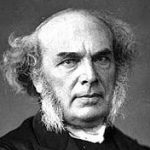Week of May 20, 2018
The Point: Be bold, but leave the results to God.
Esther’s Request: Esther 7:1-10.
[1] So the king and Haman went in to feast with Queen Esther. [2] And on the second day, as they were drinking wine after the feast, the king again said to Esther, “What is your wish, Queen Esther? It shall be granted you. And what is your request? Even to the half of my kingdom, it shall be fulfilled.” [3] Then Queen Esther answered, “If I have found favor in your sight, O king, and if it please the king, let my life be granted me for my wish, and my people for my request. [4] For we have been sold, I and my people, to be destroyed, to be killed, and to be annihilated. If we had been sold merely as slaves, men and women, I would have been silent, for our affliction is not to be compared with the loss to the king.” [5] Then King Ahasuerus said to Queen Esther, “Who is he, and where is he, who has dared to do this?” [6] And Esther said, “A foe and enemy! This wicked Haman!” Then Haman was terrified before the king and the queen. [7] And the king arose in his wrath from the wine-drinking and went into the palace garden, but Haman stayed to beg for his life from Queen Esther, for he saw that harm was determined against him by the king. [8] And the king returned from the palace garden to the place where they were drinking wine, as Haman was falling on the couch where Esther was. And the king said, “Will he even assault the queen in my presence, in my own house?” As the word left the mouth of the king, they covered Haman’s face. [9] Then Harbona, one of the eunuchs in attendance on the king, said, “Moreover, the gallows that Haman has prepared for Mordecai, whose word saved the king, is standing at Haman’s house, fifty cubits high.” [10] And the king said, “Hang him on that.” So they hanged Haman on the gallows that he had prepared for Mordecai. Then the wrath of the king abated. [ESV]
“Queen Esther had a deep, dark secret – her Jewishness – which she had kept under wraps ever since she was first taken into the royal harem back in chapter 2. She had followed Mordecai’s advice to hide her ethnicity so faithfully, even when elevated to the level of queen, that five years later no one knew who her people were or her connection to Mordecai. Think about that. Everyone knew that Mordecai was Jewish: that is what triggered Haman’s scheme to annihilate the Jews in the first place. But Esther had been under such deep cover that no one had a clue. To hide her nationality that successfully while living so intimately among pagans, she must have broken virtually every law in the books of Moses. She certainly couldn’t have observed the laws of ritual cleanliness, or of kosher food, or of special times and seasons of thanksgiving and fasting. She couldn’t even have prayed to God publicly. She had blended in completely with the pagan colors of the empire. Now it was time for Esther to come out of the closet. Haman’s edict threatened the whole Jewish community and, for the sake of her people, she had agreed to go before the king to intercede with him for their lives. That was going to be a tricky proposition, for King Ahasuerus was a dangerously unstable individual. One day, a person might be his best friend; the next day it would be “Off with his head! – and while you’re at it, impale his body on a pole.” It was all the more tricky for Esther to intercede on behalf of the Jews since the edict she needed to have revoked had been put forward by Haman, who next to the king was the most powerful man in the empire. It was signed by him in the king’s name and stood to benefit the royal treasury to the tune of half a year’s taxes for the empire. All Esther had to offer in exchange was a pretty face – and behind it, a smart brain that had been working overtime. Thus, ever since she had agreed to intercede for her people back in chapter 4, she had been pursuing an intricate strategy with the king, inviting him and Haman to banquet after banquet. By almost revealing her request and then backing off, she persuaded the king three times to commit publicly in advance to give her whatever she wished, up to half his kingdom. Finally, the time had come to reveal all. So this time, when the king asked her what she wanted, Esther was ready to speak [7:1-4]. Esther’s words were as carefully chosen as her strategy had been. After the usual court niceties, she asked for a twofold favor to match the king’s twofold offer: What is your wish? What is your request? What she wanted for her gift was the sparing of her own life and the lives of her people. At this point, Esther came out of the closet far enough to link her own fate with the fate of her people. If they were destroyed, she would be destroyed. If they were spared, she would be spared. She didn’t actually reveal which people she was talking about until the next chapter, but then Haman had never bothered to identify the people to be destroyed when he first asked for the edict. Haman, at least, would have had no doubt about what her request really meant, however. If her petition was refused by the king and the edict stood, Esther had now publicly added her own name to the list of those marked for slaughter. She had irrevocably sided with her people, at peril of her life. Esther also backed up her request with reasons. Why was her petition to the king necessary? It was necessary because she and her people had been sold to be destroyed, killed, and annihilated. Here Esther is simply quoting verbatim from the royal edict. If it had merely been a matter of enslavement, she said, she would not have brought it up at all. Esther was well aware that for Ahasuerus the empire’s needs trumped issues of mere personal freedom. There was no constitutional right to life, liberty, and the pursuit of happiness in the Persian Empire. Indeed, there is a sharp irony in this sentence, since in a manner of speaking being sold as a female slave was precisely what had happened to her personally. She herself had been enslaved as the personal toy of the king. This was not the issue she was protesting, however. Of course the king’s personal interests would far outweigh any such small injustices. To this point, the king was nodding happily along in agreement with Esther! Her logic appealed to him thus far. But genocide, said the queen, especially a genocide that may very well involve her personal death, is a different story altogether. Notice how subtly Esther made her points. She skillfully used the passive mood in describing the edict. She simply said, We have been sold, I and my people [7:4], so as to avoid having to identify the guilty party. First she wanted to make the king angry, and only then to unveil a target for his wrath, in the hopes that he would act before reflecting whether it was harder to find a new vizier or a new favorite wife. She was also softening the way for the realization that doing the right thing would hit the king in the treasury, yet at the same time affirming ahead of time that the good he could do would more than compensate for the personal loss he would suffer. When one intercedes with the empire, one has no choice but to intercede on the empire’s own terms. Esther could not simply appeal to the king’s sense of right and wrong, and point out that genocide is evil, because he didn’t think it was. Obviously the king was not troubled by the idea of genocide as such, or he wouldn’t have signed the edict so carelessly in the first place. The only constitutional given in the empire was the right of the king to maximize his own interests. Therefore, Esther’s case must rest on the fact that even though it would cost the king some inconvenience and financial loss, she did have his best interests at heart in making her request. After all. Sparing this people also meant sparing her personally. Now we can see that the conditional clause with which she opened her request – If I have found favor in your sight – is more than mere conventional court flattery. It is the heart of Esther’s argument. If she has found favor in the king’s sight, then an attack on her would also be an attack on his royal person.
Ahasuerus’s Response. The queen’s argument hit home. The king’s anger was stirred and he responded with another double-barreled question: Who is he, and where is he, who has dared to do this? [7:5]. A tempting answer for Esther might have been to say to the king what the prophet Nathan said in his confrontation with David: You are the man! [2 Sam. 12:7]. After all, none of these events could have happened without the king’s complicity. But that was not the goal of her speech. Not all injustices can be set right in the course of earthly events. As they say, politics is the art of the possible. So instead Esther focused the king’s anger on the prime mover behind the edict, saying simply, A foe and enemy! This wicked Haman! [7:6]. Elsewhere, Haman was identified as the enemy of the Jews, and that would be the ultimate reason for his demise [8:1]; however, this was not a reason that would have had any mileage with King Ahasuerus. Instead, Esther described Haman simply as an enemy because his offense before Ahasuerus was not really his enmity to the Jews, but only the fact that his edict had threatened the king’s favorite wife. Haman was appalled by this turn of events, shocked into silence, terrified before the king and the queen [7:6]. He had been completely outsmarted by Esther’s cunning strategy, and he could see that the king’s fierce anger had been aroused against him. Meanwhile, the king stalked out into his garden: And the king arose in his wrath from the wine-drinking and went into the palace garden, but Haman stayed to beg for his life from Queen Esther, for he saw that harm was determined against him by the king [7:7]. Why did the king need to take a walk at this point? Not because he needed time to think or because he wanted to cool down. Haman, at least, was in no doubt what the king’s verdict would be when he returned. Already as the king went out, Haman could see that Ahasuerus had determined to do him harm. Nor did that prospect particularly trouble the king. He was unlikely to lose any sleep over Haman’s fate. What was troubling the king was more likely the issue of his own reputation. He had authorized Haman’s edict, and his royal seal had ratified it. So how could he now, without losing face, punish Haman for promulgating a decree that he had approved personally? That was his tricky dilemma. When Ahasuerus returned to the banquet hall, he found that Haman had neatly solved his problem for him: And the king returned from the palace garden to the place where they were drinking wine, as Haman was falling on the couch where Esther was [7:8]. During the king’s absence, Haman had tried to beg for his life from Esther. The one who had sought unwittingly to take her life, now wanted her to grant him his own. In order to emphasize his request, Haman had fallen down before her, thus neatly fulfilling the prediction of his wife that he would certainly fall to his ruin before the seed of the Jews [see 6:13]. But Haman’s falling down on Esther’s couch gave the king precisely the excuse he needed to eliminate Haman without making any embarrassing public reference to the edict: And the king said, “Will he even assault the queen in my presence, in my own house?” As the word left the mouth of the king, they covered Haman’s face [7:8]. Ahasuerus can hardly have seriously believed that Haman was preparing to rape Esther in front of him, but it was a convenient charge that diverted attention from the real issue. Ironically, the one who wanted to kill a Jew for not falling down before him was ultimately executed on a charge of falling down inappropriately before a Jew! And then came the cruelest irony of all: Then Harbona, one of the eunuchs in attendance on the king, said, “Moreover, the gallows that Haman has prepared for Mordecai, whose word saved the king, is standing at Haman’s house, fifty cubits high.” And the king said, “Hang him on that.” So they hanged Haman on the gallows that he had prepared for Mordecai. Then the wrath of the king abated [7:9-10]. Thus Haman was taken out and his body was impaled on the massive pole that he himself had built just twenty-four hours before to execute Mordecai. What a difference a day makes! With that the king’s fury abated. Game over. Issue resolved. Threat to Esther removed. “Now that we’ve taken care of that little unpleasantness, what’s for supper?” we can imagine Ahasuerus saying casually to Esther. Except that from Esther’s perspective, it was far from over. Even though Haman personally had been dealt with, his edict still remained out there, like a ticking time bomb, just waiting to explode and destroy the Jews. Esther herself might be safe, guarded within the king’s palace, but that wasn’t what she had gone through this whole routine to achieve. At this point, she must still have wondered if she would be able to achieve her goal of rescuing her people.
Divine Sovereignty, Human Responsibility. In this chapter, we see the interplay between human responsibility and divine sovereignty. Esther’s intricate plan was a necessary part of the process of bringing Haman to justice, a plan that required a combination of subtlety, boldness, and strength to carry it through. Yet Esther’s plan by itself was not what turned around the fortunes of God’s people. The writer of the story has shown us this by making the king’s sleepless night the hinge on which the whole story turns. Prior to that point at the beginning of chapter 6, the fortunes of the Jews were heading steadily downhill. From that moment on, though, their prospects were transformed. The key event thus had nothing to do with Esther or Mordecai, but instead was a seemingly insignificant detail in which the hidden hand of providence may be discerned – though only with careful hindsight. Isn’t that so often how it is in life? The intricate plans we lay can never come to fruition without God’s providential blessing upon them. As Psalm 127:1 puts it, Unless the Lord builds the house, those who build it labor in vain. This chapter shows us the complementary aspect of that truth, however, which is that unless the builders labor, there won’t be much of a house! It is thus significant that the pivotal chapter in the book, from which Esther is entirely absent, is bracketed by two chapters that show her diligently using all of the means of her disposal to bring about her desired end. God’s sovereign act is the turning point, but God works through the faithful efforts of his people, just as much as through remarkable providences. This is a very practical truth. Do we want to see our friends come to Christ? We can’t reach their hearts and change them – only God can do that. But we can and should plan to talk to them about Christ, to introduce them to Christian friends, to invite them to church. Do we want to find God’s leading for our lives? Progress may depend on His opening the key doors, but there is nothing wrong with our getting out there and knocking. Do we want to have a better marriage? Unless God changes our hearts and the hearts of our spouses, we may have no hope of lasting improvement, but that doesn’t mean there is nothing we can do. Don’t sit back and wait for God to work, if you are unwilling to put yourself out in pursuit of godly desires. Most Christians err on one side or the other of this equation. Some are sit-back-and-pray types, whose motto is always “Leave it to Jesus.” For such people, the tendency is to wait for God to drop a solution to all of their problems right into their laps. Others have activist personalities and are constantly saying, “If it is going to be, it’s got to be me.” For them, the tendency is to assume that the key to progress is following some three-step strategy. The Bible, however, sets before us the goal of the balance of prayer plus action, of leaning on Christ and leading people to Christ, of resting in the Lord and walking with Him. Either one on its own is inadequate. Both together are the goal. The truly wonderful part of God’s plan, though, is that even when we get the balance wrong, He will still accomplish His holy will. Esther is the perfect example. Where is her balance? Would we say that she has a model prayer life? If she did, it is surprising that the biblical narrator has not shown us this, as we see so prominently in men like Daniel and Nehemiah. On the contrary, in chapter 4 we saw the Jewish community, among whom Esther was raised, fasting and moaning, but there is no word of them crying out to God. They may have gone through the religious motions, but there is no evidence of much true dependence on God. Yet God still delivered them, in spite of their inadequate theology. God chose to deliver His people through Esther’s activity, in spite of the absence of any explicit evidence of her prayerful dependence on Him.
God’s Faithfulness to His Covenant. This assurance is a wonderful truth! God will certainly deliver His people, whether or not they are faithful. We can be sure of this truth because His action stems from His character, not ours. As Paul reminded Timothy, if we are faithless, he remains faithful – for he cannot deny himself [2 Tim. 2:13]. It was possible to be certain all along that Haman would never ultimately triumph, not because we have confidence in the greater cunning of Esther, but because we have confidence in God’s covenant promise to Abraham and his seed. God declared back in Genesis 12 that those who bless Abraham and his offspring will be blessed, while those who curse them will be cursed. Even a pagan like Haman’s wife recognized the significance of that reality in the previous chapter, when she told her husband that since Mordecai was from the seed of the Jews, Haman would certainly fall to ruin before him [6:13]. Haman was not simply taking on the Jews but their God. What we see in this chapter, then, is simply the outworking of the negative side of the Abrahamic covenant. Haman had assaulted the descendants of Abraham and would face the consequences. Being executed and impaled on the tree – the sign of a cursed death in the ancient Near East – was the consequence of his having offended God, the Great King, more than of his having offended Ahasuerus, the king of Persia. This truth means that even at this point in the story, when everything still seemed to be hanging in the balance, the Jews had no need to fear. For if the negative consequences of the Abrahamic covenant were still in force, then surely so too was the positive goal of the covenant: that the Lord would be Israel’s God and they would be His people. Patience might yet be required to see how exactly God would deliver His people from their enemies, but His commitment to do so was not in doubt. The Lord does not change. What confidence this reality should give us!” [Duguid, pp. 85-97].
Questions for Discussion:
- Esther’s statement in verse 3, If I have found favor in your sight, lies at the heart of Esther’s argument. Her entire plan depended upon the fact that she had indeed found favor in the king’s sight. How had she found favor? How did she use this favor to accomplish her plan?
- Throughout the book of Esther the author shows his readers how divine sovereignty and human responsibility are both true. Read chapter 6 to see how God is at work preparing the king’s heart to respond favorably to Esther’s request. The king’s sleepless night is the hinge on which the whole story turns. But God also works through the faithful and unfaithful efforts of His people. God’s sovereign work includes the diligent use of all available means by His people to bring about the desired end. And God also uses the free and responsible actions of evil people to accomplish His plan. God did not force Haman to act in such a prideful and self-seeking manner. Haman freely chose to act in this way. But God used Haman’s evil actions in accomplishing His will for the safety of His people. Think back through your own life and consider how God has worked in order to accomplish His plan for your life, even using times of doubt and struggle in your life. How should this reflection influence your faith and trust in God to work in your future? How should God’s providential work in your life encourage you to make use of all available means He provides in order for you to act in a way that honors Him?
References:
Ezra, Nehemiah, Esther, Mervin Breneman, NAC, B & H Publishers.
Esther & Ruth, Iain Duguid, REC, P & R Publishing.
Esther, Karen Jobes, Zondervan.

















